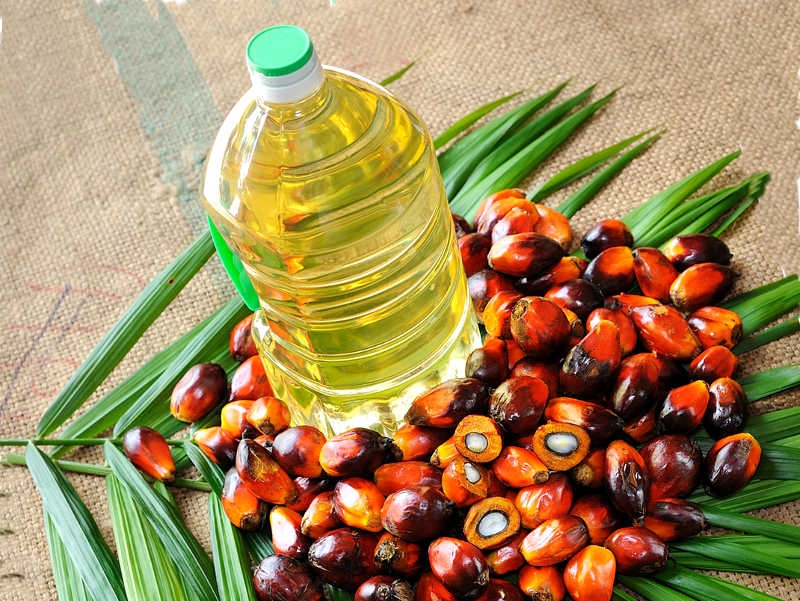Iceland reverts to palm oil ‘with regret’ as Ukraine war hits food prices

Iceland will temporarily return to using palm oil in some own-label foods from June because the price of a key alternative – sunflower oil – has soared by 1,000% during the war in Ukraine.
In 2018 the supermarket chain announced to much fanfare that it was removing the controversial ingredient, which has been linked to destruction of the Earth’s forests. As part of its stand against the product, it launched a TV advert made with Greenpeace, which was pulled after it was deemed too political.
But now the retailer’s boss, Richard Walker, has announced in a blog that he is making a U-turn with “huge regret”. “The only alternative to using palm oil under the current circumstances would simply be to clear our freezers and shelves of a wide range of staples including frozen chips and other potato products,” he said.
The Black Sea region, led by Ukraine and Russia, accounts for 80% of supplies of sunflower oil, according to analysts at the UK’s Agriculture and Horticulture Development Board, and supplies have been interrupted by the war.
Walker said the company would use sustainable palm oil as “a last resort and as a strictly temporary measure” in a limited range of products, with all packs clearly showing the ingredient if used. In some products, palm oil can be substituted for rapeseed oil.
“I haven’t changed my mind about palm oil, which is why this is strictly a temporary move, and one that I would not countenance at all if I could see any viable alternative,” Walker said.
“This is a serious emergency and one that requires tough choices and compromises if we are to achieve our prime objective of continuing to feed the nation and of delivering affordable food to those on tight budgets, who will inevitably be those worst affected by the unprecedented pressures now building up in our supply chains.”
Iceland’s move, first reported by the Grocer, comes as farmers and retailers have called for urgent government action to prevent soaring food prices and potential shortages in the UK as the war in Ukraine threatens grain and oilseed harvests, energy costs and the production of fertiliser.
Russia and Ukraine are major wheat producers and also account for about 45% of rapeseed, which is imported to the UK to make cooking oil, and more than a fifth of maize imports, which are used for animal feed and biofuels.
The boss of British poultry supplier 2 Sisters recently said food price inflation in the UK could reach 15% by the summer as the overall cost of producing chicken had risen by 50% in a year. He said energy costs had risen 400% and packaging by a fifth, while the cost of carbon dioxide, which is used in the slaughter of pigs and poultry as well as in packaging, was up by 350%.
… we have a small favour to ask. Millions are turning to the Guardian for open, independent, quality news every day, and readers in 180 countries around the world now support us financially.
We believe everyone deserves access to information that’s grounded in science and truth, and analysis rooted in authority and integrity. That’s why we made a different choice: to keep our reporting open for all readers, regardless of where they live or what they can afford to pay. This means more people can be better informed, united, and inspired to take meaningful action.
In these perilous times, a truth-seeking global news organisation like the Guardian is essential. We have no shareholders or billionaire owner, meaning our journalism is free from commercial and political influence – this makes us different. When it’s never been more important, our independence allows us to fearlessly investigate, challenge and expose those in power.
Read also
Join with the EARLY RATE – 22 International Conference BLACK SEA GRAIN.EUROP...
Ukraine has already exported 80% of the forecasted volume of rapeseed
Australia increased wheat exports by 20% in October
Palm oil prices fell by 5.4% despite lower forecasts for production, exports and s...
Ukrainian ports handled over 90 mln tons of cargo since the beginning of the year
Write to us
Our manager will contact you soon



